Mental Status Exams: 10 Best Templates, Questions & Examples
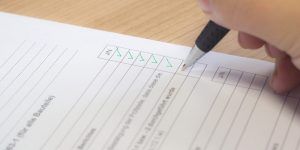 As helping professionals, we routinely gather information about our clients’ functioning.
As helping professionals, we routinely gather information about our clients’ functioning.
There are various ways to gather such information, from brief check-ins to more extended or formal evaluations.
Most formal examinations involve questioning clients in depth about their functioning and noting systematically how they behave.
One of the most common types of formal evaluation in psychiatry, psychology, and related fields is the mental status examination (MSE).
The MSE can provide future report readers with a valuable window into how a client presented at a given time, including both negative signs and positive factors.
In this article, we describe in detail standard components of the MSE and provide tips on how best to conduct it. We also offer several templates, a checklist, and questions that can be added when completing an MSE.
Before you continue, we thought you might like to download our three Positive Psychology Exercises for free. These science-based exercises explore fundamental aspects of positive psychology, including strengths, values, and self-compassion, and will give you the tools to enhance the wellbeing of your clients, students, or employees.
This Article Contains:
- What Is the Mental Status Examination (MSE)?
- The Domains Included in the MSE: 14 Examples
- Pros and Cons of the MSE
- Useful Templates, Samples, and a Checklist
- Descriptors and Terminology to Use
- 7 Questions to Ask Clients
- Helpful Videos and Books on This Topic
- A Note on Using the MSE With Children
- Helpful PositivePsychology.com Resources
- A Take-Home Message
- References
What Is the Mental Status Examination (MSE)?
The MSE is a method used to document an individual’s basic cognitive, emotional, and behavioral functioning at a given point in time (Martin, 1990).
This method has traditionally been used in psychiatry and clinical psychology but has also been adapted for other helping professions like social work and coaching.
The method usually includes a structured interview and systematic behavioral observations.
There is significant variability among the forms used by different practitioners to gather this information from a client.
At the same time, there are core domains that should arguably be covered whenever an MSE is done.
The Domains Included in the MSE: 14 Examples
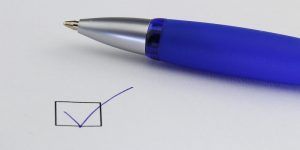
- Level of consciousness
This refers to the client’s level of alertness and responsiveness to questions or other stimuli. - Orientation
Awareness of date/time, current location, and current situation (e.g., reason for appointment). - Gross/fine motor movement
The client’s gait, posture, manual dexterity, etc. - Dress/grooming and hygiene
Is the client neatly dressed or more disheveled? Neatly or poorly groomed? Are they attending to personal hygiene?
Note: these are not value judgments, but rather descriptors that reflect a client’s functioning or insight. If their clothes are dirty and they are poorly groomed or unshaven, this tells the examiner something about their typical level of self-care and areas in which they might need help.
- Sensory function
Can the client hear well enough to understand questions and see well enough to complete forms or visual tests? - Speech
A client’s speech pattern is typically described in terms of fluency (the ease or flow), rate (from slow to rapid to pressured), volume (from soft to loud), and intonation (from normal to flat or monotone, as well as any odd tonality, such as in foreign accent syndrome (Kurowski, Blumstein, & Alexander, 1996).
Speech is obviously a critical domain, as it carries much verbal and nonverbal information, including about emotional state and coherence of thought.
- Affect
A client’s range of emotional expression, based on their speech, facial expressions, or other behaviors. - Mood
What the client reports about their internal mood state, especially as concerns any depressive or anxious symptoms. - Attention/working memory
Ability to focus on tasks (attention) and briefly hold information in mind (working memory) before using it. This domain is based on examiner observations, client self-report, or brief tests such as counting backward from 100 by 7s. - Memory
Ability to recall information, based on examiner observations, client self-report, or brief tests, such as short-term recall of three objects stated to them.
Note: Cognitive assessment within an MSE, covering basic attention and memory capacities, is typically done by psychologists, neuropsychologists, or psychiatrists with specialized training in this area.
- Thought process
The flow and coherence of thoughts, inferred from a client’s observable behaviors, especially speech. For example, if the client’s speech is rambling and disorganized, the examiner may infer that their thinking is also disorganized. - Thought content
Thought content can be inferred from spontaneous speech and direct questioning by the examiner. For example, the examiner might ask, “Have you ever heard things other people don’t hear or seen things other people don’t see?” An answer of “yes” to such questions raises the possibility of hallucinatory thought content. - Insight
How aware is the client of their own strengths and limitations? - Strengths and limitations
Traditional forms of the MSE have been designed to record any cognitive, emotional, or behavioral deficits.
There is nonetheless room for developing questions and behavioral observations to explore and document the client’s strengths in the MSE.
Pros and Cons of the MSE
A structured MSE with a user-friendly examiner form helps ensure that all crucial dimensions of a client’s presentation are explored, without neglecting any.
For example, mood is a critical domain to assess when examining a client. It is included as a domain to be queried in almost all MSE measures.
On the other hand, there are numerous forms of the MSE and no universally accepted format, which can cause some confusion among practitioners.
Below, we offer three MSE sample templates. We also include sample write-ups for the MSE and a comprehensive MSE checklist.
Useful Templates, Samples, and a Checklist
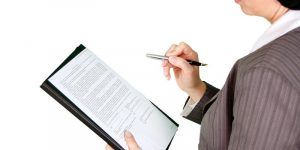
3 MSE templates
Here are three mental status examination templates. These templates include a brief MSE format and two more-comprehensive and detailed formats.
- Brief Mental Status Exam Form
- Mental Status Examination/Behavioral Observations
- Mental Status Exam and Behavioral Observations
Sample MSE write-ups
The first of these samples uses brief comments that efficiently convey all needed information. The second sample is in a longer prose style. Either style can be used to convey crucial information about a client’s cognitive, emotional, and behavioral status.
1. Child/Adolescent sample*
Behavioral observations & mental status:
Alertness: Alert
Orientation: Fully oriented
Appearance: Congruent with age, well groomed, and appropriate dress
Demeanor: Easy to engage, polite, cooperative, and good eye contact
Attention: Adequate to engage in conversation, although mild distractibility was noted on testing
Language: Fluent and without word-finding difficulty
Memory: Intact autobiographical memory
Motor: No motor abnormalities were observed
Empathy: Intact
Mood: Normal
Affect: Full and reactive
Thought process: Linear, logical and goal oriented
Thought content: Appropriate, with no psychosis, hallucinations, or suicidal or homicidal ideation
Impulsivity: Mild
Judgment: Good
Insight: Good
*Sample provided by Sarah Bullard, PhD, ABPP, used with permission
2. Adult sample
This 65-year-old woman came alone to testing, having driven herself. She appeared her stated age. She was mildly disheveled in dress and indifferently groomed. Her gait appeared mildly unsteady, and she walked with a cane (“I fell down in my house recently, so now I walk with a cane.”).
She was oriented to place and situation but less well to time (missing the day of week by one, and at first unsure of year). There was a mild tremor in both hands, which increased when reaching for objects with the right hand.
Vision appeared adequate for reading forms, but hearing seemed mildly impaired, with client needing some information repeated. Speech was halting in fluency, with evident word-finding difficulty; mildly loud; with flat intonation.
Affect was generally flat but with some lability (periodic crying spells when discussing current loneliness). She described her mood as “down” most days. She said when she felt down, it was usually because “I’m always alone now, since my husband died three years ago.”
She denied any thoughts or tendency toward self-harm. She reported some memory difficulties, especially for new information. When questioned about alcohol intake (a concern included in physician referral), she said she drank “a few – three or four – glasses of wine” every night but did not consider this a problem.
Insight appeared limited in this latter respect. Social judgment appeared basically intact, based on questioning about a hypothetical scenario (“What would you do if you found a wallet on the floor in a supermarket?” “Bring it to customer service.”).
There was no evidence of formal thought disorder or abnormal thought content. Motivation/effort on testing was variable (gave up easily as test items became even moderately difficult).
Checklists
Some examiners prefer the convenience of a checklist when conducting an MSE, which they can later expand upon in drafting a formal report.
A comprehensive checklist can be found here: Mental Status Examination Rapid Record Form.
This checklist is highly detailed and includes a very useful glossary of mental status-related terms.
Descriptors and Terminology to Use
The following worksheet lists common terminology and descriptors that can help make MSE write-ups intelligible to subsequent readers of reports. Shared terminology would prudently include the following, with associated descriptors (generally on a continuum from normal to abnormal):
| Term | Definition | Common descriptors |
|---|---|---|
| Level of consciousness | How alert, aware, responsive is the client? | Alert.
Hypervigilant. |
| Orientation | Awareness of time, place, nature of situation | Oriented x 3 (time, place, situation).
Partly oriented (e.g., oriented to place and situation, but poorly to time, such as “gave current year as 1984”). |
| Quality of movement | Can include gait, fine motor ability, speed/dexterity | Normal gait and upper extremity movements.
Unsteady gait, tremors (when at rest or reaching, etc.), slowed movements, restless/fidgety. |
| Affect | Observed range of emotional expression | Normal in range, appropriate to situation, congruent with mood.
Blunted or restricted (little expressed emotion), flat (no expressed emotion), labile or very variable. |
| Mood | Client’s emotional self-report | Normal or euthymic.
Sad or dysphoric, hopeless, variable mood, irritable, worried or anxious, expansive or elevated mood. |
| Speech | Fluency, rate, volume, intonation | Fluent. Normal rate, volume, intonation.
Halting speech, word-finding difficulties, pressured speech. |
| Thought process | Flow and form of thought (as reported by client or inferred from behavior) | Linear, coherent, goal directed.
Tangential, flight of ideas, loosening of associations, racing thoughts, thought blocking. |
| Thought content | Nature of ideas | Normal thought content.
Fixed ideas, delusions, hallucinations (auditory or visual, etc.). |
| Attention | Ability to focus | Attentive.
Variable attention, distracted. |
| Memory | Ability to encode, store, and retrieve information | Intact for recent memory. Intact for remote memory.Limited or deficient for recent or remote memory. |
| Insight | Awareness of own strengths and limitations | Intact insight.
Limited insight. |
| Judgment | Understanding how to act and react in social situations | Good judgment.
Fair judgment. |
| Motivation/Effort | Client’s apparent level of motivation and effort toward participating in session | Good motivation/effort.
Limited or variable motivation/effort. |
7 Questions to Ask Clients

- What benefit do you hope to gain from this (psychiatric, psychotherapeutic, social work, coaching, etc.) service?
- What are your strong points? What are you particularly good at? (See strengths exploration form, below.)
- Do you have any difficulties – psychological, social-emotional, academic, vocational – you would like help with?
- Have you had any psychological or other interventions in the past, such as psychotherapy, job coaching, etc.?
- What, if anything, has worked for you in the past as an intervention?
- What are your primary goals in life? (See goal-setting form, below.)
- What are the obstacles, if any, to reaching your goals?
Helpful Videos and Books on This Topic
To learn more about MSE, we share a YouTube video, as well as a two books to enhance your understanding of the process.
Mental Status Examination With John Sommers-Flanagan
This video is one example of how an MSE might be conducted. The examiner here is an experienced clinician, skilled at working with individuals in a psychiatric context who might need gentle redirection back to the topic at hand (Sommers-Flanagan, 2020).
The following mental health books are also recommended.
1. Mental Status Examination: 52 Challenging Cases, DSM and ICD-10 Interviews, Questionnaires and Cognitive Tests for Diagnosis and Treatment – Wes Burgess
This book details how the mental status examination is typically done and provides numerous vignettes of various client types and how their strengths/limitations can be assessed.
Readers rate it as highly engaging and useful for a range of practitioners in the helping professions.
Find the book on Amazon.
2. The Mental Status Exam Explained – David J. Robinson
Readers have rated this book as highly accessible and practical in terms of learning to do mental status examinations.
The MSE is as crucial to psychiatry as the physical exam is to other areas of medicine. This text was written to provide a practical, concise, and enjoyable introduction to the MSE.
Find the book on Amazon.
A Note on Using the MSE With Children
The following points about conducting MSEs with children are adapted from Martha J. Faulkner’s Pediatric Mental Status Exam.
- Be welcoming to the child.
- Allow the parent in room if this helps soothe the child. If separating from an adult for a time is needed, note if this is easy or difficult for the child.
- Acknowledge and, where possible, validate the child’s concerns.
- Encourage the child to explain things in their own terms.
- Does the child appear well nourished and physically well developed?
- Emphasize open-ended questions.
- Be empathic.
- Observe the child’s manner of relating to others. Does the child appear immature or precocious for their age?
- Carefully distinguish between such phenomena as fanciful ideas, imaginary friends, or inner voices (common in childhood) versus delusions or visual or auditory hallucinations (not common in childhood).
Helpful PositivePsychology.com Resources
We have several resources that can be used in conjunction with the MSE, including tools for strengths-based interviewing. Some of these are available as part of the Positive Psychology Toolkit©, which contains over 400 tools, exercises, and assessments for mental health practitioners who are interested in applying the latest tools.
This Mental Status Exam: Exploring Strengths worksheet is designed to help you explore a client’s strengths when conducting an MSE.
You might further explore goals with a client using this Mental Status Exam: Goal Setting worksheet.
If you’re looking for more science-based ways to help others enhance their wellbeing, check out this signature collection of 17 validated positive psychology tools for practitioners. Use them to help others flourish and thrive.
A Take-Home Message
The mental status exam is a critical component of evaluations, across the helping professions.
When properly done, an MSE and its accompanying write-up provide a valuable window into a client’s functioning at a given point in time.
It also serves as a helpful point of comparison with a client’s documented functioning at other times.
Conducting an MSE requires skill in behavioral observation, experience in interviewing, and flexibility in adapting questions to a client.
There should be flexibility in asking questions that might be off-template, as this can help capture a client’s unique profile related to their strengths and limitations.
By following a comprehensive template while interviewing a client and observing their behavior, you can be confident you have not missed crucial information about their status.
We hope you will find the various MSE templates, checklists, and domain descriptors in this article useful in your own work with clients.
We hope you enjoyed reading this article. Don’t forget to download our three Positive Psychology Exercises for free.
- Burgess, W. (2013). Mental status examination: 52 Challenging cases, DSM and ICD-10 interviews, questionnaires and cognitive tests for diagnosis and treatment (vol. 1). Author.
- Kurowski, K. M., Blumstein, S. E., & Alexander, M. (1996). The foreign accent syndrome: A reconsideration. Brain and Language, 54(1), 1–25.
- Martin, D. C. (1990). The mental status examination. In H. K. Walker, W. D. Hall, & J. W. Hurst (Eds.), Clinical methods: The history, physical, and laboratory examinations (3rd ed.). Butterworths.
- Robinson, D. J. (2016). The mental status exam explained. Rapid Psychler Press.
- Sommers-Flanagan, J. (2020). Mental status examination with John Sommers-Flanagan [Video]. Retrieved August 30, 2021, from https://www.youtube.com/watch?v=adwOxj1o7po
Let us know your thoughts
Read other articles by their category
- Body & Brain (49)
- Coaching & Application (57)
- Compassion (26)
- Counseling (51)
- Emotional Intelligence (24)
- Gratitude (18)
- Grief & Bereavement (21)
- Happiness & SWB (40)
- Meaning & Values (26)
- Meditation (20)
- Mindfulness (45)
- Motivation & Goals (45)
- Optimism & Mindset (34)
- Positive CBT (28)
- Positive Communication (20)
- Positive Education (47)
- Positive Emotions (32)
- Positive Leadership (18)
- Positive Parenting (4)
- Positive Psychology (33)
- Positive Workplace (37)
- Productivity (17)
- Relationships (46)
- Resilience & Coping (36)
- Self Awareness (21)
- Self Esteem (38)
- Strengths & Virtues (32)
- Stress & Burnout Prevention (34)
- Theory & Books (46)
- Therapy Exercises (37)
- Types of Therapy (64)

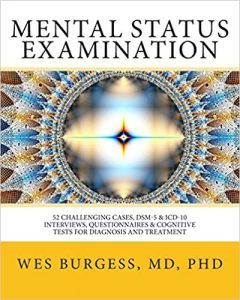
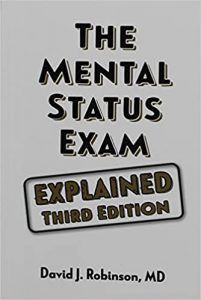




What our readers think
very helpful
very informative
It’s very much informative and helpful for me as I am new in this field. Everything is very useful. Thanks a ton for this!
it was helpful need to learn more
This article was very informative. Thank you for providing such important content that is useful to me as a graduate student.
It is a good read, truly!
I would love to have some samples of MSE specifically tailored for SUD cases.
Thank You
Hi Aayesha,
Glad you enjoyed the post! You’ll find a good example of some MSE questions for SUD here, as well as some useful screening tools listed described in this publication by the US Substance Abuse and Mental Health Services Administration.
Hope this helps!
– Nicole | Community Manager
yeah all of them were great thanks
It’s very helpful.good explanation.
My name Gladys , I really found this helpful. Do let know when you have any webinars or recorded sessions. Thank you
Hi Gladys,
Glad you found this helpful! We offer recorded training sessions on various positive psychology topics via our Masterclass series, which can be purchased from our store page. We also have some free podcast episodes that may interest you.
Hope this helps!
– Nicole | Community Manager